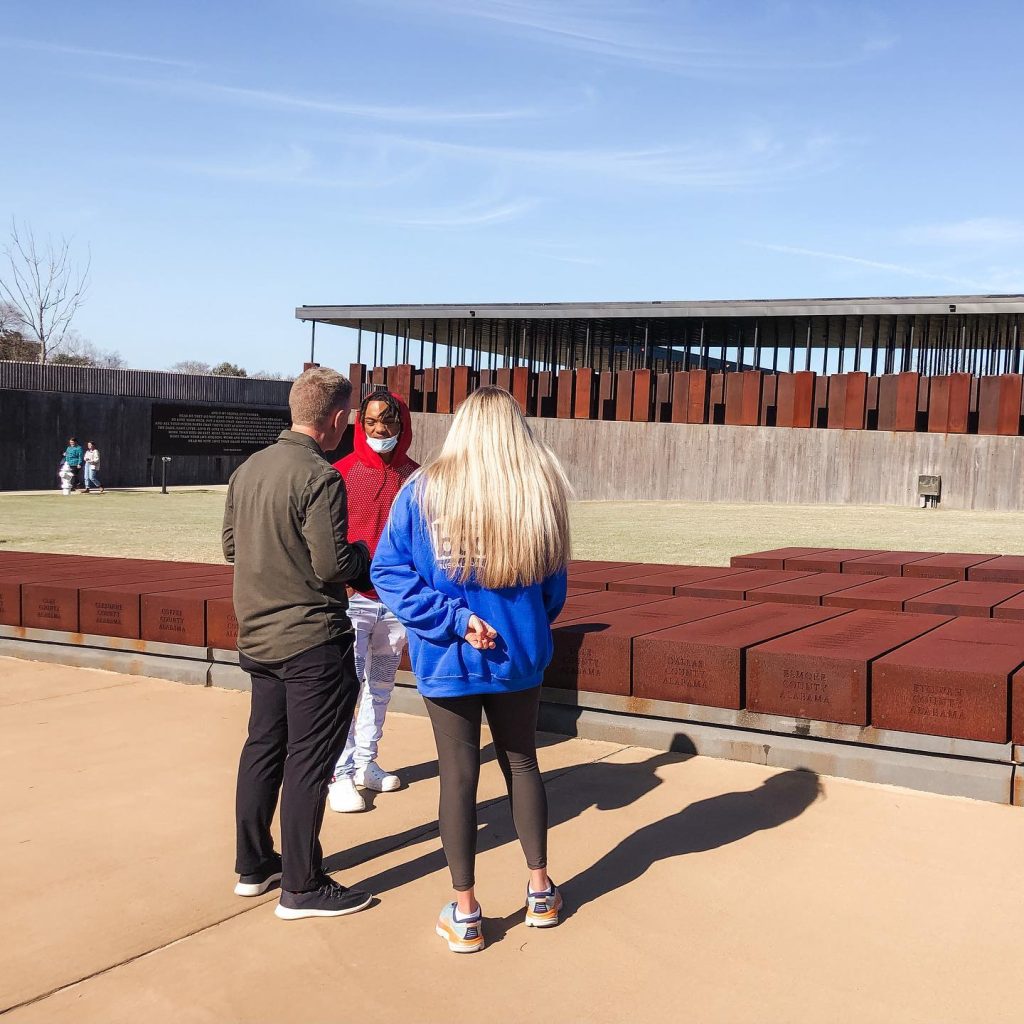 The Alabama Memory Project is an undergraduate research course directed by Dr. John M. Giggie and sponsored by the Summersell Center for the Study of the South.
The Alabama Memory Project is an undergraduate research course directed by Dr. John M. Giggie and sponsored by the Summersell Center for the Study of the South.
Launched in 2017, this project seeks to memorialize publicly the lives lost to lynching in the state of Alabama. Working on a county-by county basis, Alabama Memory students commit themselves to recovering every historical detail possible about each lynching case. Most importantly, this project seeks to not only uncover why these men, women, and children were murdered but also to memorialize who they were before they died—asking what were they like, how did they live, who did they love, and who did they leave behind?
One of the most difficult parts of this history is that no matter how hard or diligently students may work, there will always be parts of this story that cannot be known or recovered. There will always be an injustice that cannot be undone. Dr. Giggie often says of this work, “The tragedy of lynching is that these victims die twice—once to the mob and once to history.”
For many students this work doesn’t stop when the semester ends. Since the first class in Spring 2017, more than student researchers have participated in the Alabama Memory Project. According to Margaret Lawson, the current Vivian Malone Fellow and co-teacher of the course, “For many students, this class stays with them for more than one semester. For me, this class was the reason I became a historian and teacher. This class was the first time when I understood why history mattered and where I began to think that I also mattered as a student, a historian, and a young person living in the South today.”
As the program has grown, many students have taken the ideas and questions that mattered to them in the Alabama Memory class and expanded them into undergraduate seminar papers and honors theses. Even more than traditional research papers and projects, however, students have gone on to take the themes and ideas that were important to them in the Alabama Memory Project and develop other research initiatives, courses, and community partnerships.
For example, in the fall of 2022, undergraduate student John Pace led the Alabama Memory Project to partner across campus with the Randall Research Scholars Program at UA to work with undergraduate computer science students to create digital humanities projects based on the course’s research.
In 2019, Dr. Giggie and Margaret Lawson partnered with Central High School and the Tuscaloosa City School system to design a local Black history course, called History of Us, for high school students. As of 2022, the History of Us course is active in all three Tuscaloosa City High Schools.
All of these projects and many more have grown from Dr. John M. Giggie’s vision for the Alabama Memory Project—to create a space to teach with and learn from students as we all reimagine what it means to teach engaging, culturally responsive, and inclusive southern history.